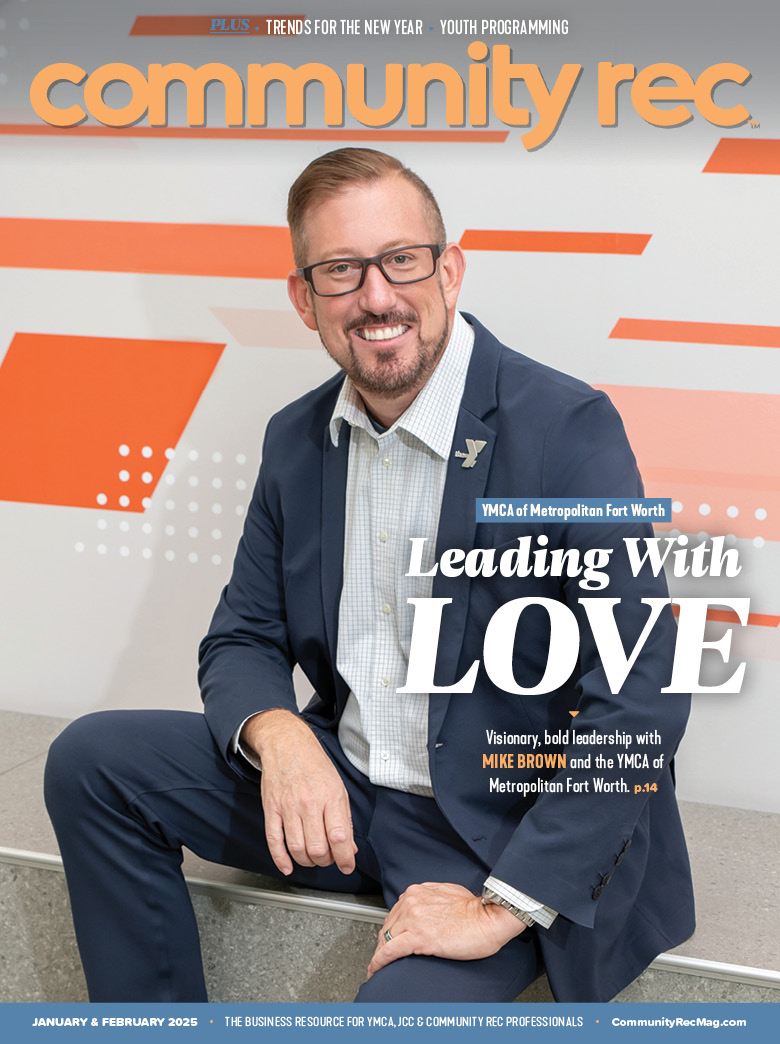The COVID-19 pandemic has taken its toll on community rec organizations across the country. In this “Tough Calls” series, industry experts share how their organizations are battling through financial adversity, problem-solving and making difficult decisions that will hopefully be of benefit in the long run.
Financial struggles have been an unavoidable byproduct of the COVID-19 pandemic, and the YMCA of Greater Louisville has seen its fair share.
Aside from forced closures limiting revenue-producing operations, social distancing guidelines have kept members from visiting their local Y even when the facilities are open. “We’re only getting about 38% to 40% of our year-over-year traffic into our facilities right now,” explained Steve Tarver, the president and CEO of the Louisville Y.
The financial strain from fewer memberships has forced the Louisville Y to make tough decisions, including limiting programs and services, reducing full and part-time staff, and in early August, closing the fitness facility at its Bullitt County branch and completely closing its Middletown branch.
The Middletown branch was a leased storefront location, so when evaluating the association’s operations, Tarver and his team felt paying a lease was no longer feasible. And while youth activities are very popular at the Bullitt County branch, the traditional fitness center operations were no longer financially viable.
“We still have a very active child care program in Bullitt County, we’ll be doing some youth sports,” said Tarver. “So we closed the fitness facility, but we didn’t necessarily leave the county.”
In fact, both branches had gone through a membership loss of roughly 40% over the past two years, according to Tarver. However, that doesn’t make these decisions any easier to make.
“There’s nothing unique about having to make these decisions — for-profits and nonprofits are faced with this,” said Tarver. “It breaks my heart to be making some of these decisions, but I’d like the Y to be here in the next couple of years. There’s a higher calling that goes for these difficult decisions.”
The financial strain of the pandemic has also caused the Louisville Y’s leadership team to make difficult decisions concerning its staff.
“Since we’re only getting about 40% of our traffic year-over-year, we’ve had to make decisions relative to staffing models,” shared Tarver. “Those are devastating decisions to be making with people we love and people who perform with caring hearts.”
After evaluating every aspect of its operations, the Louisville Y has had to reduce its workforce by 50% over the past few months. “We’ve gone from about 2,200 staff to about 1,100 staff,” said Tarver. “That has been challenging.”
Efforts have been made, however, to soften the blow for staff members. When the Louisville Y initially shut down its facilities in March, it allowed staff who were eligible for vacation or sick leave to get paid for those days and bridge their income.
The result was almost $300,000 to give staff members some relief. “That doesn’t necessarily solve the problem, but at least it was a good faith effort to try to be as caring as we could,” said Tarver. “You have to put your business hat on. We try to use data and try to match that with compassion.”
Despite all these challenges, however, the Louisville Y has stayed true to its mission of strengthening and serving the community, even if it’s in a limited capacity.
“We’ve remained committed to do some of the things we think are most important to the community in a situation like this,” shared Tarver. “For example, our Safe Place Services teen shelter has been open every single day, 24 hours a day, every single day. We’ve provided essential child care to the community, we’ve kept our men’s housing open at the Chestnut Street Y, and we’ve made a few thousand calls during the closure period to various staff and members whom we thought might have a need to be checked on. We’ve also provided tens of thousands of virtual participation options during the closure period.”
Ironically, Tarver believes operating with more intentionality is one of the few good outcomes of the pandemic so far. “One of the things this unknown environment has created is the necessity to go back to our fundamental mission and be focused on the core values of the organization,” he said. “We’ve had to pull back in and rally around that.”
Only time will tell what the future holds for the community recreation industry, but the Louisville Y will continue to adapt and overcome, with its focus always on what the community needs.
“Inspiring our staff to refocus on who we are, how we go about our business, and what our mission is — to help people grow in spirit, mind and body — has been a guiding star for us,” shared Tarver.
Bobby is the former editor of Community Rec Magazine.










